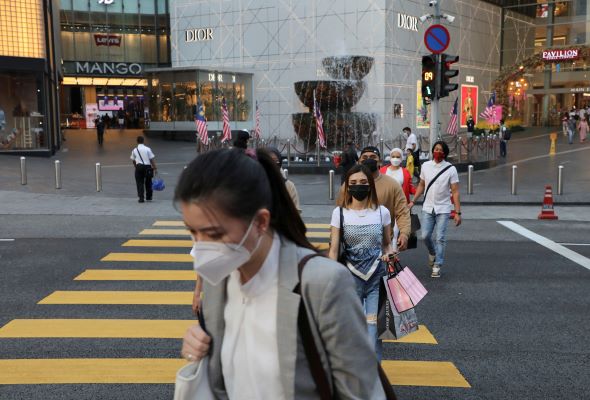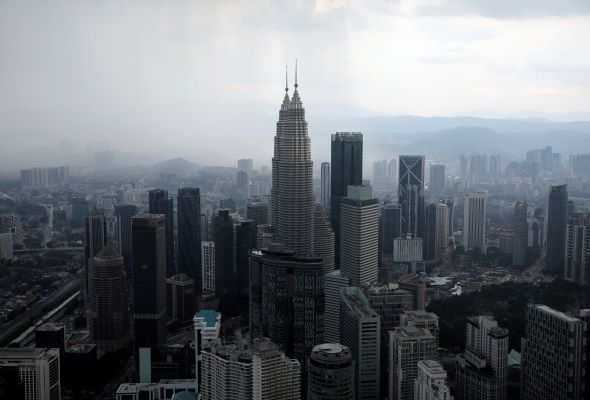
Published in Asia News Asia, Focus Malaysia & Astro Awani, image by Focus Malaysia.
Politicians often get the full brunt of public opprobrium for failures in policies and governance. Ultimately, the political leaders are accountable as they are the decision-makers, finally, and then too on behalf of the people and nation.
But it appears we have also overlooked the corrupt civil servants that have largely stayed out of the limelight and, by extension, the crosshairs of the people’s anger and outrage.
Ministers and political appointees come and go, but the posts held by civil servants are relatively much more secure or are permanent and less exposed to public scrutiny.
As Malaysians fight for institutional reforms and cultural changes, who is there to police the civil servants and instil a cultural change deep within their ranks and secure networks?
Recall the time when the Malaysian Anti-Corruption Commission (MACC) arrested seven civil servants for allegedly being part of the “tender cartel” which reportedly controlled over 150 companies and RM3.8 billion worth of government projects.
As mentioned by Transparency International Malaysia (TI-M), cartels in the civil service – such as the one alluded to – betray the rakyat’s trust.
Collectively, these carnal, materialistic and corrupt minds in the civil service are a stumbling block to our quest and aspiration for a better Malaysia – a more just and prosperous society undergirded by holistic and inclusive progress, equitable share of wealth and so on.
It matters not who is the Minister-in-charge if the civil servants responsible for the policy implementation have their own “rice bowls” and “turf” to protect – which have become so vested and entrenched over the years.
According to the Australian Competition and Consumer Commission (ACCC), cartels (in general) can restrict and stultify healthy growth and development of society by unwittingly reducing innovation and choicesthrough elimination of healthy and robust competition and by protecting inefficient players.
A cartel culture also reduces potential investments by blocking new market players, and disrupt the natural dynamics of supply and demand. These market entry blockages and the absence of fair and proper competition is inimical to honest start-ups and small-and-medium enterprises (SMEs) – Bumiputera or not.
The outcome is increasing loss of confidence by the rakyat and investors.
Cartels control access to government projects “by rigging bids in public infrastructure projects which inflates costs and ultimately reduces the public sector capacity to invest in beneficial projects,” as stated by the ACCC.
Thus, national revival and rejuvenation will not happen without at the same time addressing corrupt, immoral, and illegal practices by public servants through their cartel activities and syndicates.
Although the 12MP focuses extensively on the Bumiputera agenda, civil servants play a big and critical yet often underestimated role in excluding honest Bumiputera companies and contractors that compete for government projects.
Irresponsible and badly indoctrinated civil servants (by politicians playing the race card, no less) act as background enforcers of cartel activities – sometimes hiding and masquerading behind racially-driven policies that only enrich the elites and privileged few of that nexus between politics and business.
As mentioned in the 12MP, the vast majority of the very poor are the Bumiputeras.
The nexus of corrupt civil servants, self-serving politicians and venal business elites operating together and concurrently as cartels and syndicates only serves to increase the wealth disparity.
Now, “[t]his is despite the government’s efforts to uplift the Bumiputeras through well-planned affirmative action policies and awarding of contracts”, as stated by TI-M.
Ironically, as a vicious cycle, the cumulative negative impact leads to socio-economic enervation.
In our context, this can be seen in the form of high debt levels among the low paid civil servants, which in turn is one major driving factor for the susceptible ones to be drawn to illegal cartel activities.
As published by Bank Negara’s Financial Stability Review (FSR), “Civil Servants’ Debt: Risks and Policy Considerations” in 2018, civil servants spend more than half of their salary to repay debts, which is 20% more than the national average.
According to the FSR, most civil servants have very little financial resilience as roughly 64% earn below RM5,000 per month. After deductions for monthly loan repayments and food expenditure, utilities, and other basic necessities, only about 15% of their salary – approximately RM360–RM586 – remains.
Additionally, when witnessing lifestyle “peer pressure” through “living beyond their means” as a result of extraordinary pecuniary gains by senior civil service figures of the cartel is combined with a situation of high-debt and low purchasing power, this tend to induce “desperate” civil servants throughout the entire chain of command to be involved in corrupt practices.
Without addressing the socio-economic issue and the fundamental question of morals/ethics, the “net” and “tentacles” continue to spread ever wider and deeper within the system in blind pursuit of material gain – ever-feeding into the vicious downward loop.
If this remains unaddressed, we will spiral down on a trajectory towards being a failed state.
In the book, Why Nations Fail: The Origins of Power, Prosperity, and Poverty (2012) by Daron Acemoglu and James A. Robinson, the authors provide a riveting account as to how “… it is man-made political and economic institutions that underlie economic success (or the lack of it)”.
Lack of the political will together with the underlying systemic, structural and institutional pillars in results in “extractive” economic institutions such as monopolies, cartels, modern-day slavery and “peonage”, feudalistic culture and the State behaving no different than organised crime or mafia in the exercise of its naturally coercive powers.
To quote from Scott Robinson’s review of the book (published on the website of the Lowy Institute): “As wealth and power is concentrated, the ability of the holders of power to propagate and enforce these institutions increases” – and hence the “vicious cycle”.
In Chapter 3: The Making of Poverty and Prosperity, the authors write:
“There is strong synergy between economic and political institutions. Extractive political institutions concentrate power in the hands of a narrow elite and place few constraints on the exercise of this power. Economic institutions are then often structured by this elite to extract resources from the rest of the society. Extractive economic institutions thus naturally accompany extractive political institutions”.
This state of widening wealth disparity, decreasing purchasing power, deepening poverty, declining living standards, etc. results from the lure of certain lifestyles, and a top-down culture that promotes corrupt civil servants and shields them from the prying eyes of the law are serious hindrances to effective and efficient policy implementation.
Unfortunately, we have seen reports of how even law enforcement agencies may have been plagued by their own internal cartels that work closely with the criminal syndicates.
Even public servants rising through the ranks of law enforcement agencies could be of questionable integrity. Most recently, there have been allegations relating to the sale of police ranks which comes with a hefty price tag.
What happens to those who don’t play ball?
The good ones may not get promoted, and transferred elsewhere – leaving the top positions filled with morally unqualified and ruthless individuals.
Do we really expect people “cut from the same cloth” to help curb corruption, cartels, and syndicates?
As we applaud MACC’s good work earlier this year in what appears to be a serious push against cartels and syndicates, officers within the corruption buster entity has found itself entangled with the issue of the “missing millions”.
Let us not forget the Macau scam shenanigans where there were reports of a “fake Datuk Seri” climbing over the fence of the MACC headquarters in order to make his escape.
There have been suggestions for the Public Service Department (PSD) to implement rotation of sensitive posts, as mentioned by the Chief Secretary to the Government Tan Sri Mohd Zuki Ali as one of the ways to address syndicates monopolising government tenders.
However, the status of this policy is unclear. A similar policy for sensitive posts in the police force was mentioned in 2020 by former Inspector-General of Police Tan Sri Abdul Hamid Bador.
Not least, the Malaysia Competition Commission (MyCC) and the MACC must be made fully independent i.e., not parked under a ministry but answerable to Parliament and empowered with its own funding. Both MyCC and MACC should form a joint task force specifically to address the malignant and deep cancerous culture spreading amongst the civil servants.
We have a long way to go – in stemming and reversing the rot that’s so deep in our society. But it has to be done as, at the end of the day, the civil servants – like their political counterparts – are answerable to both God and the rakyat.
Jason Loh Seong Wei & Ameen Kamal are part of the research team of EMIR Research, an independent think tank focused on strategic policy recommendations based on rigorous research.

